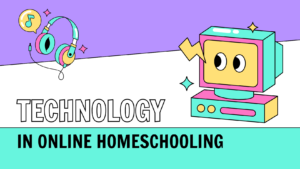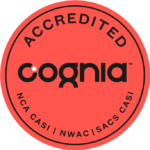How Online Schools Can Enhance Homeschooling
October 24, 2019
written by Angie Prieto, Ideal School

In some countries such as the United States, for example, it is considered common to see how parents or representatives of elementary students prefer to choose home schooling than to enroll the child in a brick and mortar school. This may happen due to religious, ideological or pedagogical reasons; especially because they think that private education will give their children more knowledge.Furthermore, there are online schools that are part of a system developed based on the use of new technologies that promise more freedom and dynamism when studying. The creation of academies that work on the Internet has given an extra alternative to choose to those parents that want to personalize their children’s education and, currently, there are those who wonder how one option can help the other.
In this way, to know how online schools can improve homeschooling, it is convenient to analyze the following aspects.
Dynamism: Internet education has the peculiarity of being highly interactive. This is due, firstly, to its methodology and, secondly, to its diversity of resources. The main idea of this system is that students actively participate in their learning process, therefore, it supports the activities a child can carry out at home, making the study more fun and capturing their attention more easily.
Freedom: another premise that personalized education follows is to give students the possibility to adapt their class hours to their needs and requirements. In this sense, both online schools and homeschooling have to promote individualism when learning, so that an online school can help learners to organize, more quickly and effectively, how their work plans and their schedule will be.
Interaction: it is said that conversation and socialization are key points in any teaching process, that is to say, a student must interact with others to acquire knowledge through sharing experiences. This fact could represent a disadvantage for homeschooling, since, if it is not worked in the right way, it can result in isolation. To avoid that, online schools can be used as a tool, especially those that follow partner learning models, because they motivate the student to be part of workgroups and group activities that can be developed online.
Content: both methodologies promote the use of content that can be adapted to the qualities, needs and objectives of each student. Traditional home education, on the other hand, usually requires a tutor to organize the topics to be studied and serve as a support to clarify any doubt that may be presented to the student. In contrast, online education would have this content permanently on the platform, which would allow students to choose, on their own, what they want to study or review, relying on the tutor or teacher to answer questions and concerns.
Both homeschooling and online schools are educational systems that pursue similar goals and objectives; they aim to cultivate greater and better knowledge thanks to the development of a teaching process based on what the student needs as an individual entity that is different from the rest. Homeschooling is personalized and it works according to the child’s requirements. Online schools promote adaptive and interactive education taking into account the individual qualities of each one.
Consequently, the two options can be used together. The advanced and technological tools offered by online schools are perfect to improve the planning of studies at home, helping the student learn particularly but, at the same time, working on their social and cultural skills.






